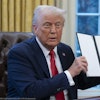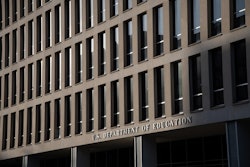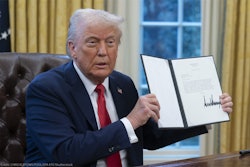Scholars and educators in gender and ethnic studies are examining the increasingly negative narratives surrounding Vice President Kamala Harris with keen interest and sharp commentary.
As a politician and a woman of color, Harris has experienced both overt barbs and subtle microaggressions throughout her ascent to the vice presidency, but the recent drubbing has reached new heights, to the extent that a Politico article in December noted that despite being “a natural successor to the oldest president ever elected, she’s also in trouble.”
 Vice President Kamala Harris
Vice President Kamala Harris
Although the intense criticism is being described as a recent development, some in academia saw this coming.
“Is it surprising that the same people who rejected Hillary Clinton and who reject Alexandria Ocasio Cortez are rejecting VP Harris?” asks Dr. Kendra Hamilton, assistant professor of English and director of the Southern Studies Program at Presbyterian College. “Not at all, because it appears to be not so much about politics — all these women have quite distinct political positions and personas — as it is about gender.”
In the past, Harris was subjected to public disrespect not accorded to her male counterparts. In 2017, Dr. Stephanie Norander, associate professor of communication studies at the University of North Carolina at Charlotte, wrote an article in Feminist Media Studies titled “Kamala Harris and the Interruptions Heard Around the Internet.” In it, Norander describes the frequent interruptions Harris faced as she spoke during televised hearings of the U.S. Senate Intelligence Committee investigating Russian interference in the 2016 presidential election.
“During the hearings, she received much attention for being the only committee member to be interrupted not once, but twice, during her allotted witness questioning time. On June 7, she was interrupted by committee Chairman Richard Burr and Senator John McCain while questioning Deputy Attorney General Rod Rosenstein. Burr, together with McCain, again interrupted Harris on June 13 during her questioning of Attorney General Jeffrey Sessions,” Norander wrote. “Mainstream and social media took swift notice of these events, primarily speculating about why Harris was the only one to receive such treatment.”














